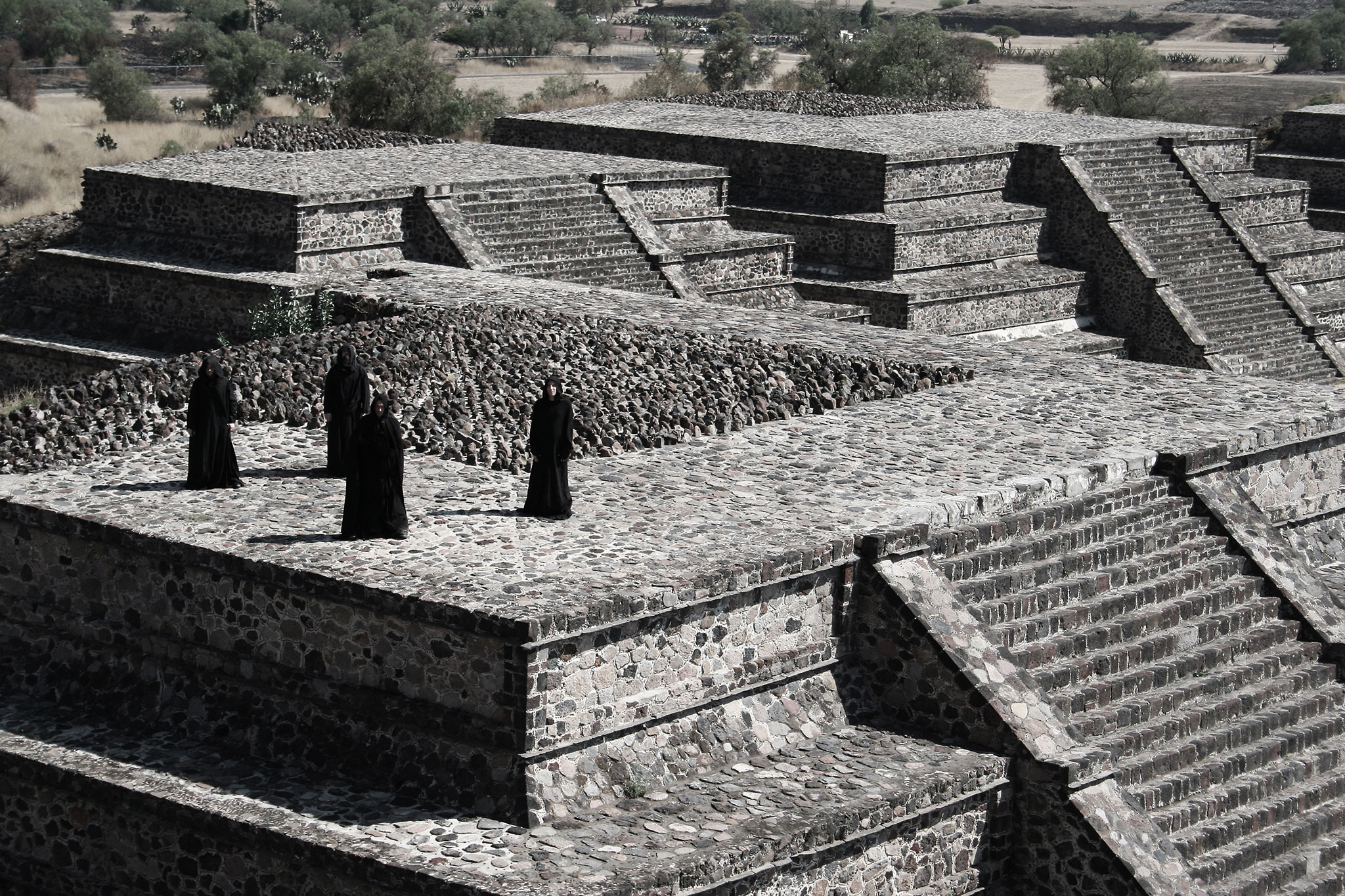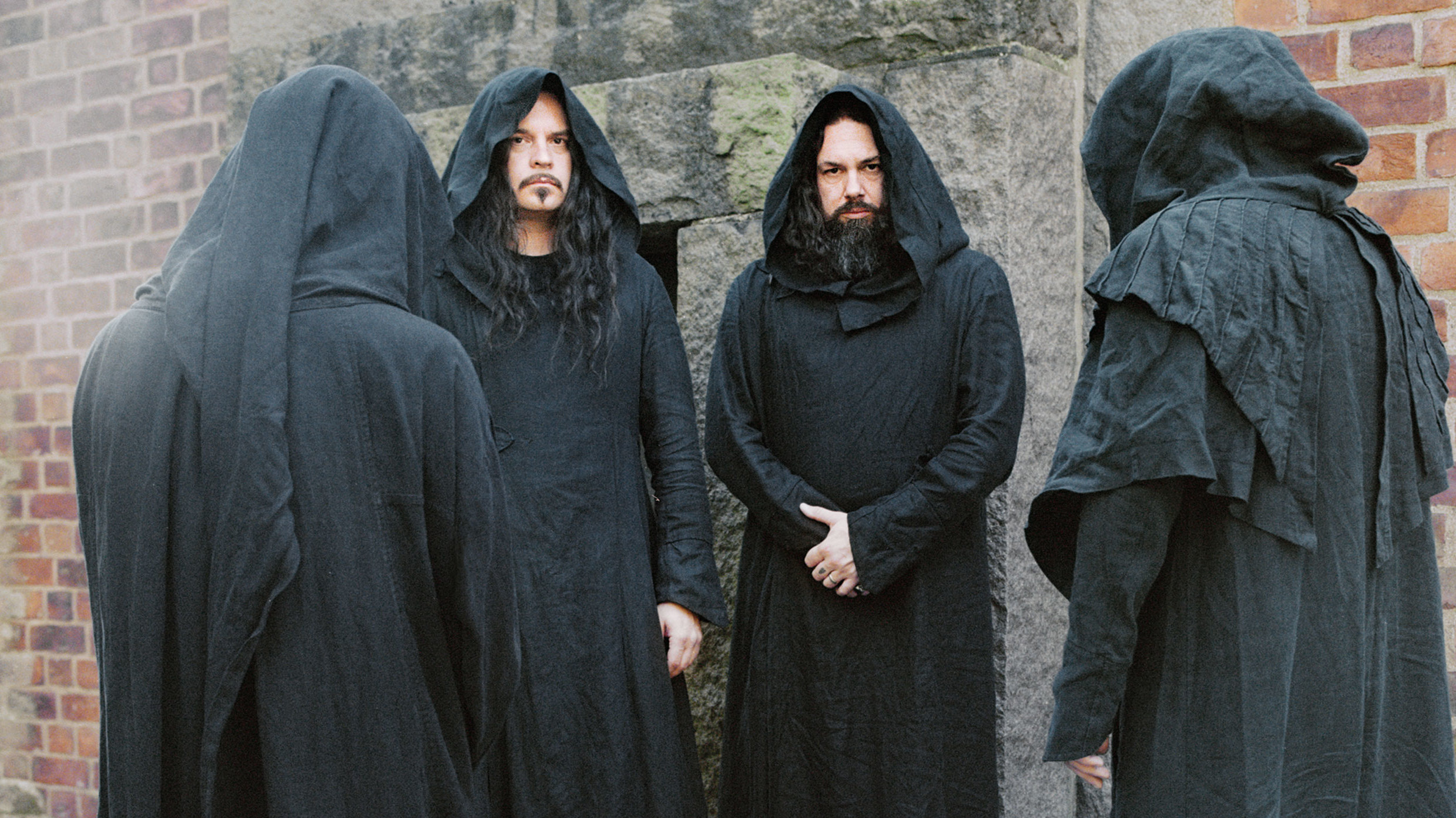What could be more progressive than the act of taking music to places where it has never been before?
Superficially, of course, the extraordinary music made by Sunn O))) over the last 18 years exhibits little that most of us would recognise as progressive rock of any description, and yet the huge impact that members Greg Anderson and Stephen O’Malley have had on the worlds of underground and experimental music suggests the duo have plenty in common with prog’s pioneers. Dedicated purveyors of what can loosely be described as ‘drone’, initially inspired by the works of Earth and The Melvins, Sunn O))) have long flown the flag for musical freedom.
“The idea of starting the group was just really an excuse for Stephen and I to keep playing music together,” Anderson explains. “In the mid-90s we had two bands together, Thorr’s Hammer and Burning Witch, which were more traditionally structured bands with bass, drums, guitars and vocals, and verses, choruses and more traditional songs. We really enjoyed playing music together and we both ended up moving away from Seattle, where we’d grown up, and we ended up in Los Angeles at the same time.
“There were no aspirations, no goals. When most people start a band they want to achieve certain things, like put out a record, go out on tour, get laid, all that kind of stuff. With Sunn O))) there was none of that. We didn’t know what we were going to do at all. We wanted to basically play music together, play riffs through as many amps as we could get our hands on, and we were pretty out of our heads too! We were just experimenting, you know?”
The earliest Sunn O))) recordings are an object lesson in minimalism and overpowering repetition, the lumbering gait and overdriven riffs of doom metal stretched out to almost unthinkable lengths, creating a quasi-ambient wall of sound that rattled bowels, shook floors and conjured a disorientating but irresistible cocoon of thick bass frequencies around the listener. Early albums like OO Void and Flight Of The Behemoth were swiftly embraced by the underground metal scene, but it wasn’t until the band began to realise the limitless possibilities inherent in their sound that the true progressive potential of this odd approach to music began to exert its full strength.
Through numerous collaborations with like-minded musicians from every corner of the sonic spectrum, the drone became a remarkable and vast canvas via which all manner of alien and familiar elements could be reconfigured and assimilated. The result of this has been that records like astonishing live album Dømkirke and 2009’s mind-blowing Monoliths & Dimensions have enabled Sunn O))) to connect with audiences far beyond their metal roots.
“For me, Sunn O))) have been one of the most consistently fascinating and brilliant groups of the 21st century,” proclaims Steven Wilson. “I’ve followed their evolution from the early Sabbath-riffs-at-quarter-speed heavy drone albums to their hugely ambitious masterpiece Monoliths & Dimensions, not to mention their surprising collaborations with Scott Walker, Ulver and Boris. I’ve liked it all, loved a lot of it, and I’m always curious to see where they will go next, and isn’t that the sign of a truly progressive artist?”
“I think one of the pieces of the puzzle of Sunn O))) and our relationship and chemistry together is our extreme enthusiasm and obsessiveness with music, and music of all genres,” Anderson suggests. “Even when we met, Stephen was very open-minded. At that time I was into searching out different kinds of music, and jazz in particular. He turned me on to a lot of underground death and black metal that I wasn’t aware of, and I turned him on to a lot of jazz and experimental music, so we bonded on that enthusiasm and geekiness about music and being really excited about it.”
The means of expression may be entirely different, but the intent and desire behind what Sunn O))) have become widely celebrated for creating places them very much in the mould of the groundbreaking prog, jazz and art rock bands of the early 70s. In fact, while there might not be much obvious common ground between, say, the harrowing, slow-motion nightmares of Sunn O)))’s 2005 album Black One and the artful adventures of King Crimson or Mahavishnu Orchestra, Anderson is keen to emphasise that the spirit of liberated creativity that drives his proudly unorthodox group comes from precisely the same place.
“I was, early on and still to this day, really into some of the fusion music that was coming out in the late 60s and the early 70s, especially the Miles Davis stuff and Mahavishnu Orchestra and John McLaughlin,” he says. “Even though if you compare it with Sunn O))), it’s very different and hard to find commonalities there, that’s what we were listening to and really turned on to, and it definitely had a major effect, especially the freedom of it.
“What Miles was doing with music and how it sounded so sinister at times, it was incredible and totally changed the way I thought about music. That’s a completely progressive mentality for sure.”
A hugely significant factor in Sunn O)))’s status as honorary prog foot soldiers is the way the band have turned their live performances into a bewildering but immersive subversion of the very notion of a rock’n’roll show. The first time this writer saw them perform was on May 12, 2000 at The Underworld in Camden, London, where the drone disciples were supporting Greg Anderson’s other band, stoner doom crew Goatsnake. Invisible to the crowd, they lurked behind a wall of amplifiers that were pushed centre stage, allowing the skull-shattering bass crescendos and underlying dissonant throb of their sprawling songs to be the audience’s sole focus. Simultaneously ridiculous and inspired, it was a masterstroke that added a great deal of mystique and skewed credibility to their reputation.
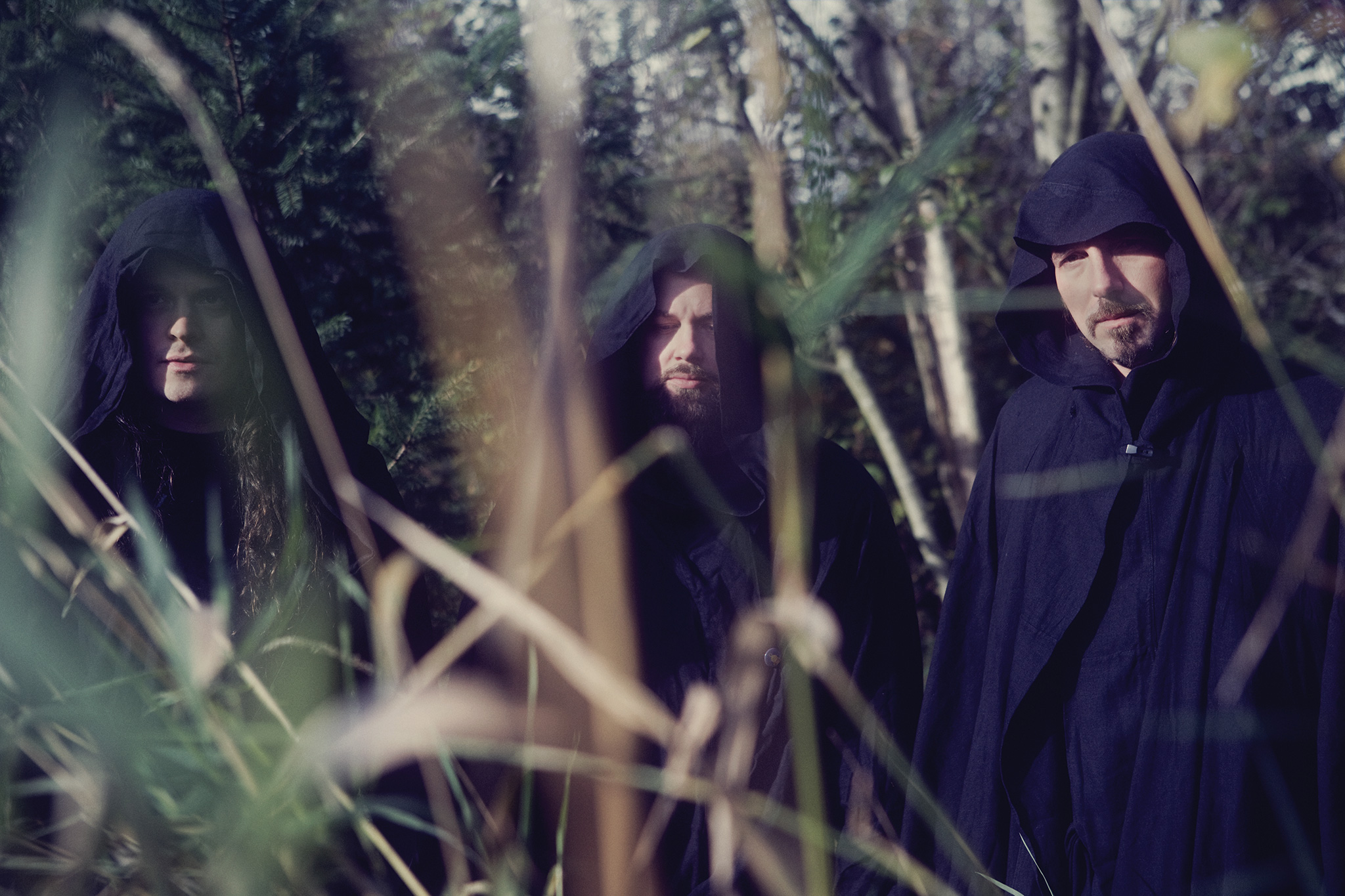
“It’s funny you mention that show because it was kinda the turning point for me personally,” Anderson reveals. “We’d done several shows but they were difficult and disappointing. For me, playing with Sunn O))) required a totally different headspace and I noticed we played our shows in our jeans and T-shirts, in front of our amps, like a regular band would do. I felt it was really distracting seeing the audience reaction, whether it was positive or negative… and most of it was negative! That didn’t bother me, but it was messing with my focus.
“So at that London show we decided to do something different. We put the amps at the front of the stage and that anonymity really allowed me to get into that headspace and it also changed my whole feeling and outlook on what we were doing. So that was the catalyst for coming up with what we do now, wearing robes and having tons of fog on stage. We decided to figure out how to keep our identity somewhat concealed and make it more than just another rock show.”
Therein lies one of the principal reasons why Sunn O))) fit so well into the progressive rock realm: their gigs offer a dizzying mixture of mind-expanding sound, off-kilter theatre and, thanks to the staggering volume levels the band insist on employing, a strong sense of gravitational pull that draws audiences into the eye of the sonic storm. Although more abstract than anything Genesis or Yes brought to the live arena in the 70s, it adheres to that same holistic, audiovisual approach, indicating that not only is music capable of much more than ticking widely accepted aesthetic boxes, but it’s also able to invite people into an unfamiliar yet absorbing world in and of itself.
“That’s what we wanted. To put it simply, the music is unorthodox so the presentation should complement that,” says Anderson. “We also try to play in venues that are different, in theatres or in churches, different kinds of spaces, rather than the usual rock’n’roll, black box club that’s in every city. We try to create a new experience for people, almost like taking a new drug. It’s a physical experience and visually it’s very different from what a traditional rock band would do.”
The sheer physicality of the Sunn O))) experience has become notorious for having a significant, measurable effect on the flesh and blood of those who witness and succumb to it.
“Yeah, we hear stories every once in a while – people get sick from time to time!” Anderson laughs. “To be honest, it’s really unfortunate that there’s a lot of clubs and venues that have a decibel limit. There are fines that go along with that, if they go over the limit, so it becomes harder and harder for loud music to take place in a lot of these places. It’s starting to happen in the States as well, but they’re really cracking down in Europe. But we won’t compromise on the fog or the decibel limit. We don’t play all the time and it can be rare, so for someone to go and experience something like that, when the volume is between 120 and 125 dB, it’s like a massive sound experiment that people can take part in.”
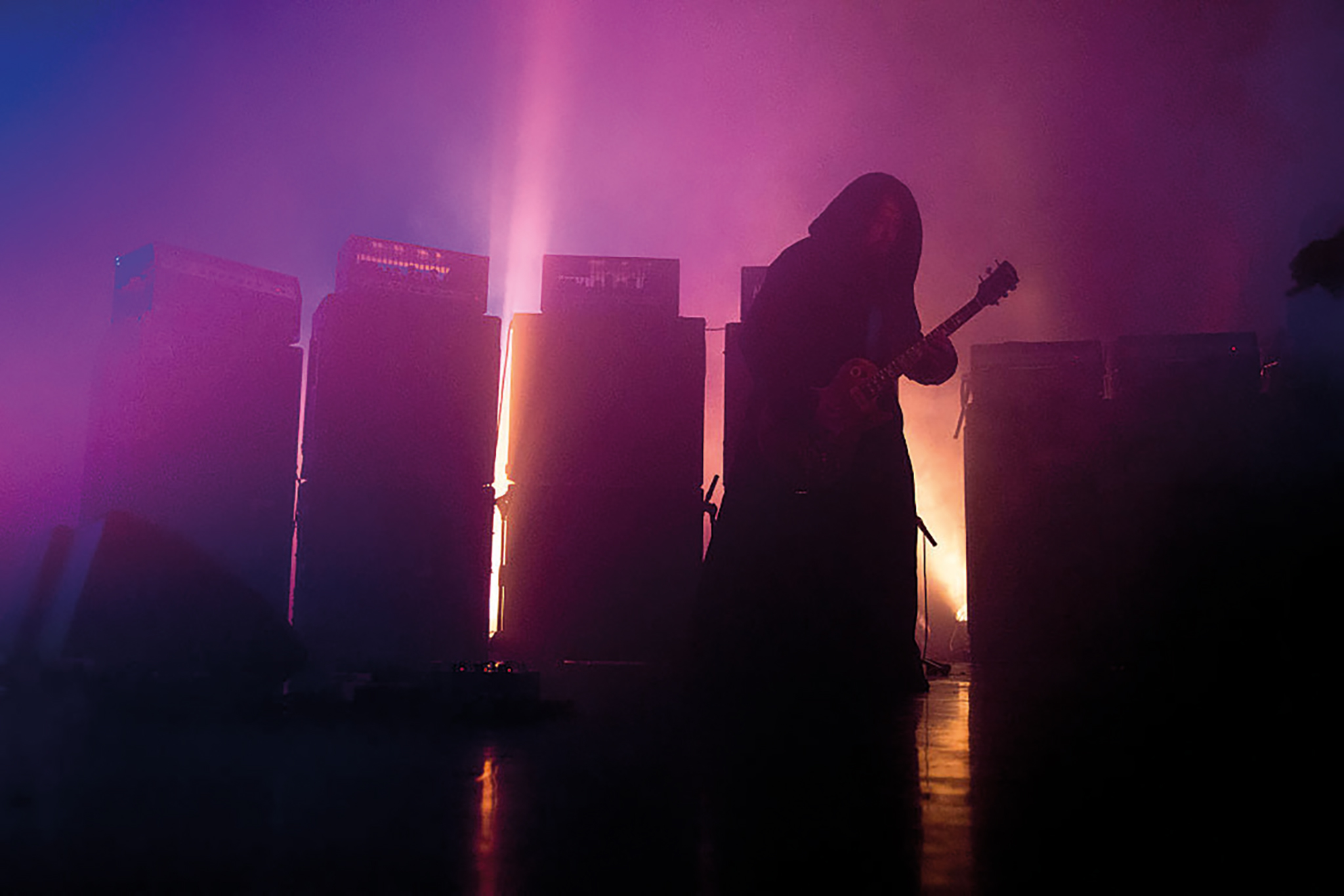
It’s a testament to the compelling nature of Sunn O))) that they achieved the seemingly impossible (or at least, incredibly unlikely) feat of making an album with Scott Walker, 2014’s universally lauded Soused. Another figure renowned for a progressive and liberated mindset, albeit again not specifically tethered to traditional notions of prog music, Walker’s endorsement and offer to join forces clearly had a profound effect on Anderson and O’Malley’s own music – not least because after a few years of relative inactivity in the studio, they found that making Soused reignited their enthusiasm. The result is their most recent Sunn O))) album, Kannon.
“We learned such a lot from working with Scott in particular,” Anderson admits. “I approached that with a very, very open mind and looked at myself as a sponge, like, ‘I’m just gonna soak all this information up and I’m here to learn…’ For the first time ever, we were taking direction from someone else. All the other collaborations we’ve done, with Boris and Ulver and some of the musicians that have appeared on our own records, they were primarily guided by us. We’re steering the ship. With the Scott Walker thing, that wasn’t the case at all. It was the opposite, where Scott was the musical director of the album and we were effectively there to be his backing band! We never thought it’d be possible to have a collaboration with him, but it was amazing.”
As likely to be wowing the masses at experimental art festivals as they are to be bludgeoning metal fans in dingy basement venues, Sunn O))) are the kind of band that come along only once in a blue moon. More than anything else, they exist to alter our perception of what music can be, what it can do and how it can connect us to something beyond what we fully understand. The drone is all-encompassing: a primitive rumble with endless potential, a starting point for inspiration, a prolonged mirroring of the human heartbeat, drawn out for all eternity. No wonder so many people are being steadily sucked into the heart of its insistent squall.
“That’s one thing that I really love about this group,” Anderson says. “It appeals to a wide array of people that are into lots of different kinds of music. When people want to go and experience something they haven’t experienced before, there’s a curiosity that goes along with that and that’s perfect for us. I think it’s awesome to find ourselves in that position after all this time, and we’re really grateful.”
Kannon is out now on Southern Lord. See the website for more information.
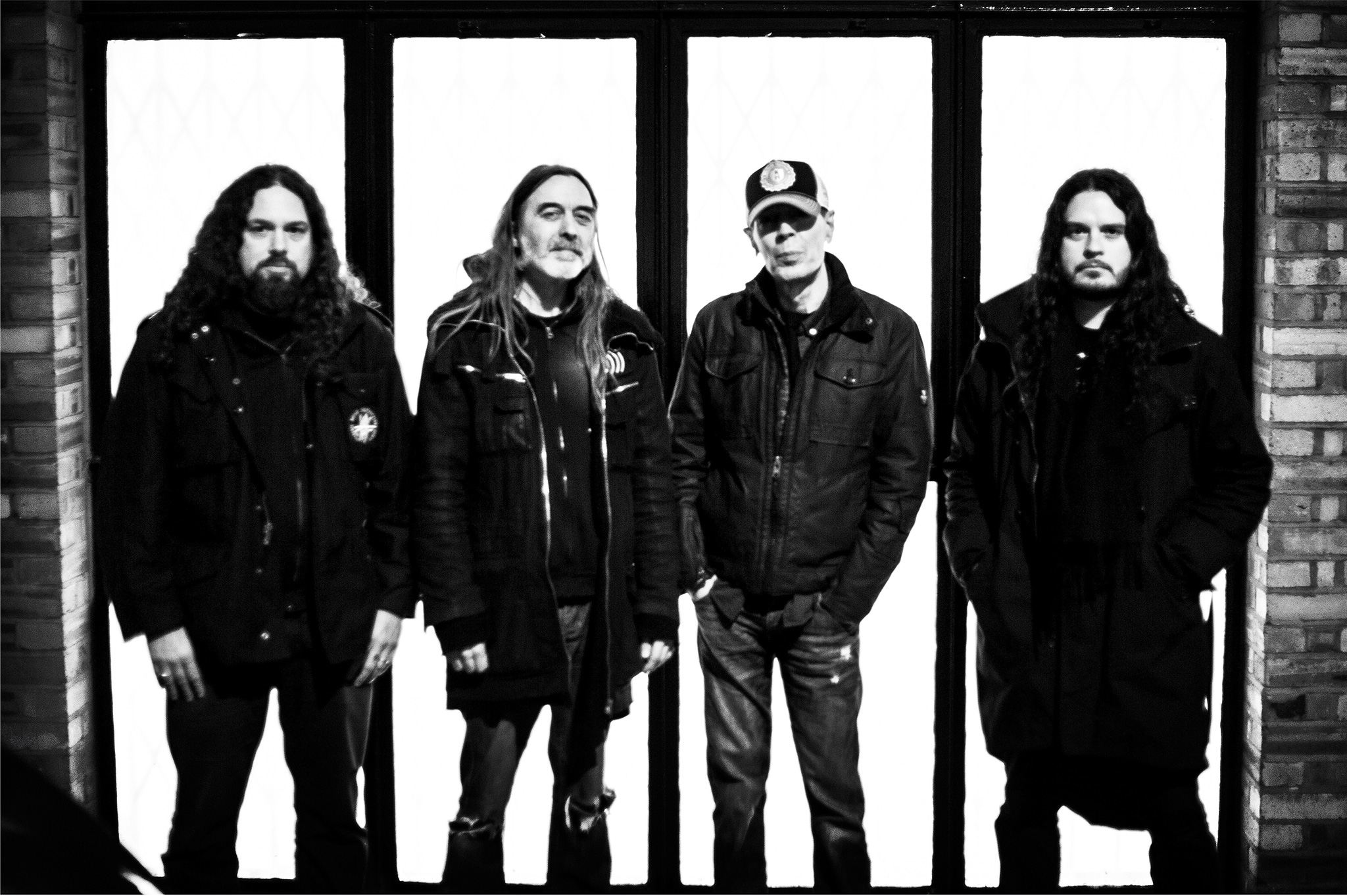
YOUR SHOUT!
They’re drone, but to some they’re also impenetrable metal. And to one reader, they’re “absolute sewage”. But are Sunn O))) prog? You tell us.
“Black prog… Almost exclusive to them. Sorta like Cardiacs (prog punk).”
Ryn Melanson
“Prog music is a very large tent and Sunn O))) should likely be included.”
Kent Brehm
“Progressive in the literal sense.”
Shawn Dudley
“Is that even a valid question?”
Cristian Ramos
“Mindblowers.”
Mike Bezalel
“Absolute sewage.”
Harold J Cagie
“A unique type of their own prog.”
Jonathon Scott
“To me it sounds more like trog(lodyte)! Word that rhymes with the final syllable of the final word of the previous sentence!”
Rob Trevor
“I’ve only heard Monoliths & Dimensions. I really enjoyed it, but I wouldnt describe it as proggy. I think it’s repetitive in a meditative, inward facing kind of way. I qualify that because some repetitive stuff does strike me as proggy. Like Swans’ last album.”
Jack O’Donoghue
“Stretching the boundaries of what most people consider music. That sounds like a good definition of ‘progressive’ to me.”
Peter Brouwer
“Technically they are not really prog but they still rule.”
Matt Kudasai
“Great band, but not prog in the way we know it, Jim.”
Joost Niekus
“Very, very marginally (but not much) more than ELO…” [Very good - Ed.]
David Reilly
“I’d say they’re in a league of their own, not really prog.”
Laura
“I played a track on Soundart Radio and I believe they’re prog.”
Stephen @ WHR
“I couldn’t believe he would play all nine minutes of track two on the radio!”
Justin (Radio bloke)
“What we really need to know is how prog was Benny Hill? A concept single about the love rivalry between milkman and baker with a supernatural twist at the end? Should have stretched it out into a double album. It would have been better than The Wall…”
Russell Horsfield
“Well they recorded a great album with Scott Walker (Soused), and that sounded pretty progressive to me. I’m happy to read about them.”
Justine Chapman
